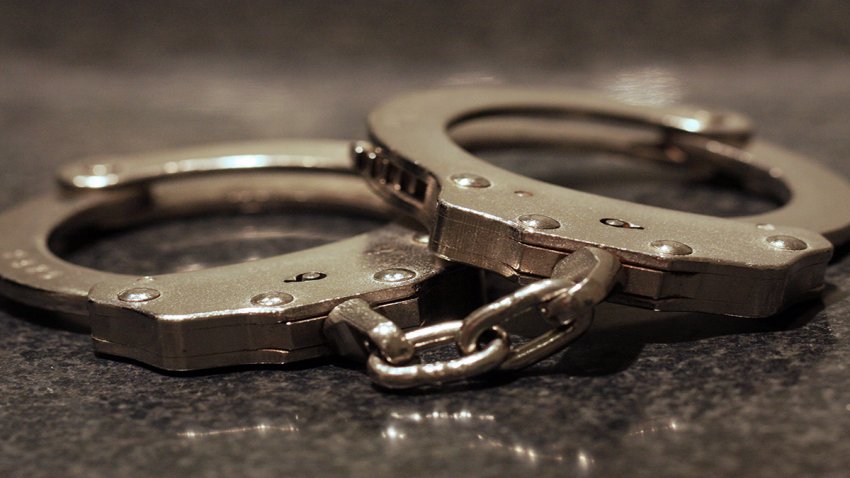Boston Mayor Marty Walsh on Thursday announced the five items the city's police reform task force has recommended to change the Boston Police Department, including a new, independent oversight office and expanded use of bodycams.
The public will be able to comment on the Boston Police Reform Task Force's draft report, including at a Sept. 22 hearing, before it's finalized, Walsh said at his regular news conference on the the city's response to the coronavirus pandemic. The group, being led by former U.S. Attorney Wayne Budd, was created in June to review police practices in the wake of the death of George Floyd.
The recommendations are, as announced in a city news release:
- Create an independent Office of Police Accountability and Transparency (OPAT) with full investigatory and subpoena power, i.e. the ability to call witnesses and to compel the discovery of documents, to replace the CO-OP.
- Formalize and expand the BPD's commitment to diversity and inclusion.
- Expand the BPD's use of the body-worn camera program where it increases police transparency and accountability, and continue to ban the use of biometrics and facial recognition software.
- Enhance the BPD's Use of Force policies so that they articulate clear and enforceable disciplinary code of consequences for violations and infractions and hold the BPD publicly accountable for the violation of these policies.
- Adopt data and record practices that maximize accountability, transparency and public access to BPD records and data.
Read the full police reform draft report here:
"As we continue our work to finalize these recommendations, I urge all Boston residents to read our report, and share your feedback, and be a part of this crucial, important work," Budd said in a statement.
While the draft report may still be subject to change after the public review period, Walsh spoke about it supportively Thursday, saying that the oversight office will be staffed by civilians, not police officers, and housed in a city building that isn't City Hall or Police Headquarters.
Local
In-depth news coverage of the Greater Boston Area.
He said the task force's report is part of Boston's continued commitment to bringing about change, which has included Walsh's June 12 declaration of racism as a public health crisis. The mayor also announced the formation of the panel that day as part of a pledge to the Obama Foundation's My Brother's Keeper Alliance that committed to review and reform of the BPD's use of force policies that includes community engagement through a public process.
"Our steps in June were not one-time responses, these steps are not one-time actions," he said. "The goal is about continued dialogue and improvement."
The task force held public listening sessions, solicited testimony and expert advice and researched the issues on the way to producing the report.
Boston was one of many cities across the United States that saw major protests this spring in the wake of the killings of Floyd and other Black people by police.
Coronavirus Updates
Boston's average coronavirus positivity rate has dropped nearly in half in the last two weeks, from 2.8% to 1.5%, Walsh said.
The remarks come after Walsh fielded questions at his last coronavirus news conference about whether he would soon announce his reelection campaign for next year.
"Right now I'm focused on running the city and seeing us through the COVID-19 crisis," Walsh said at a press conference Tuesday. "My job right now is focusing on being the mayor of the City of Boston."
Get top local stories in Boston delivered to you every morning. Sign up for NBC Boston's News Headlines newsletter.
The mayor said he is spending most of his time and energy right now making sure schools are able to reopen safely, working to keep essential workers and restaurant employees from losing their jobs and fighting for racial equity. And when he's not at work, he said he's working to ensure that Joe Biden and Kamala Harris are elected to the White House.
"There will be plenty of time to have those conversations," he said of whether he'll seek another term.
Walsh was also asked Tuesday why he revealed that City Councilor Michelle Wu called him Sunday to tell him she was running for mayor next year instead of letting her release the news on her own terms. The Boston Globe reported that Wu told Walsh the news in a Sunday phone call. A spokeswoman for Wu did not deny the news but the candidate has yet to make a formal announcement.
"A reporter from the Globe asked me a question -- if I had received the call. He had heard I received a call form the councilor," the mayor said. "When I say no comment and I know an answer it's pretty not fair to do."
"I was asked a question by a Globe reporter," he added when pressed by a reporter. "I've answered every question you've asked me."
Walsh's last coronavirus update came two weeks ago, when he discussed a recent coronavirus spike in the city's East Boston neighborhood. He said if the situation didn't improve, he might have to consider a curfew, among other measures.
On Tuesday, the mayor said the situation in East Boston has shown some improvement of late but he remains concerned.
"We're starting to see the numbers go down," he said, from a positive test rate of 11.4% two weeks ago to 8.7% as of Sept. 1. "That's a good way to see the numbers go. We want to continue that downward trajectory."



